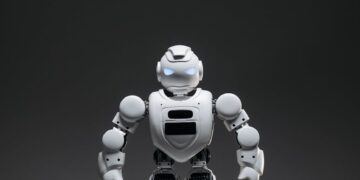The landscape of work and daily life is undergoing a profound transformation, driven by the rapid evolution of generative artificial intelligence. Once confined to the realm of science fiction or advanced research labs, tools capable of creating text, images, code, and more are now accessible and incredibly powerful. This isn’t a distant future scenario; it’s a present reality. The question is no longer whether generative AI will impact us, but how immediately and profoundly it is already shaping our professional responsibilities and personal routines. Are you truly prepared for its instant integration into your tasks, decisions, and interactions, making it an indispensable part of your immediate future?
The shifting landscape of daily tasks
Generative AI has swiftly moved from novelty to an indispensable assistant, fundamentally altering how we approach routine tasks. In the professional sphere, its impact is particularly pronounced in areas requiring content creation and data synthesis. Imagine drafting comprehensive reports, crafting engaging marketing copy, or summarizing lengthy meeting transcripts. Where these once consumed hours, AI can now provide accurate, contextually relevant drafts in minutes. For developers, tools like GitHub Copilot are rewriting code snippets, debugging, and suggesting functions in real time, dramatically accelerating development cycles. Similarly, sales professionals are leveraging AI to personalize outreach emails at scale, tailoring messages to individual client needs based on readily available data. This isn’t about replacing human input entirely, but rather about augmenting our capabilities, freeing up valuable cognitive resources from repetitive, time-consuming efforts to focus on higher-level strategic thinking and critical decision-making. The immediate effect is a palpable boost in productivity and efficiency across virtually every industry.
Enhancing creativity and problem-solving
Beyond automating mundane tasks, generative AI is proving to be a powerful catalyst for human creativity and sophisticated problem-solving. Consider the iterative process of design: graphic designers can use AI to generate multiple visual concepts and variations from a simple text prompt, accelerating brainstorming and exploration phases. Architects might employ AI to rapidly visualize different structural configurations or material applications. For writers, overcoming writer’s block becomes less daunting with AI suggesting plot twists, character dialogues, or even entire narrative outlines. In more complex scenarios, AI can help dissect intricate problems by identifying patterns in vast datasets that might elude human perception, then proposing novel solutions or approaches. For instance, in scientific research, it can help hypothesize new molecular structures or experimental pathways. This collaborative dynamic—where AI acts as an intelligent sounding board, idea generator, and conceptualizer—elevates the human capacity to innovate, allowing professionals to push boundaries that were previously limited by time, resources, or sheer imaginative scope.
Personalization and convenience in everyday life
The immediate influence of generative AI extends far beyond the workplace, permeating our personal lives with unprecedented levels of personalization and convenience. Think about how you plan a trip; instead of endless searching, an AI can now craft a bespoke itinerary tailored to your preferences, budget, and even dietary restrictions, complete with flight bookings, hotel suggestions, and local activities. In the realm of learning, AI-powered tutors adapt to individual learning styles and paces, providing personalized explanations and practice problems. Smart home systems are becoming more intuitive, not just responding to commands but anticipating needs based on learned patterns and preferences, optimizing energy usage and enhancing comfort. Even in health and wellness, AI can analyze personal data to offer customized workout routines, meal plans, or even mental well-being prompts. This shift makes everyday interactions more seamless, decisions more informed, and personal experiences uniquely adapted to the individual, making AI a quiet, omnipresent force for bespoke living.
Navigating the immediate challenges and opportunities
While the immediate benefits of generative AI are clear, its rapid integration also presents pressing challenges and significant opportunities that demand our attention. On the challenge front, we face the imperative of skill adaptation; new roles emerge, and existing ones evolve, requiring continuous learning and upskilling. Ethical concerns surrounding data privacy, algorithmic bias, and the potential for misinformation are more urgent than ever, necessitating robust frameworks and critical evaluation. The distinction between AI-generated and human-created content blurs, raising questions of authenticity and intellectual property. However, these challenges are fertile ground for innovation and growth. The opportunity lies in leveraging AI to solve complex global issues, foster unprecedented levels of productivity, and create entirely new industries and job categories. Success in this evolving landscape hinges on our collective ability to not just adopt these tools, but to master them responsibly, understanding their limitations as well as their strengths. Below is a snapshot of essential skills for navigating this new era:
| Skill category | Key competencies | Immediate impact |
|---|---|---|
| Prompt engineering | Crafting effective queries for AI models | Directly influences AI output quality and relevance |
| Critical thinking | Evaluating AI-generated content for accuracy and bias | Essential for verifying information and making informed decisions |
| Ethical AI use | Understanding and applying AI responsibly | Mitigates risks of misuse, ensures fairness and transparency |
| Adaptability | Embracing new tools and changing workflows | Enables continuous learning and professional agility |
The immediate, daily impact of generative AI is undeniable, transforming both our professional tasks and personal routines with remarkable speed. We’ve explored how it streamlines work processes, elevates creative endeavors, and injects unprecedented personalization into our lives, moving from a conceptual idea to an indispensable daily tool. However, this profound shift is not without its complexities, demanding a proactive approach to skill development, ethical considerations, and critical evaluation. The future isn’t a distant event; it’s unfolding in every interaction we have with these advanced tools today. Therefore, understanding and actively preparing for this new reality isn’t merely advantageous—it’s absolutely essential for anyone looking to thrive. Embrace the learning, engage with the technology thoughtfully, and prepare to redefine what’s possible in your work and life.


















